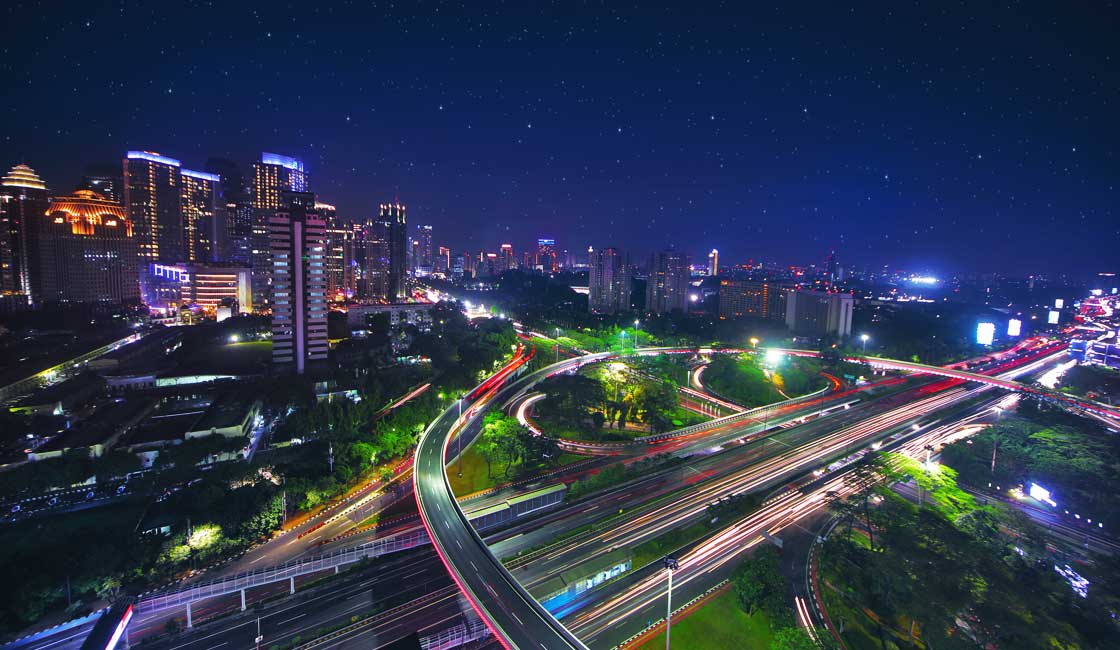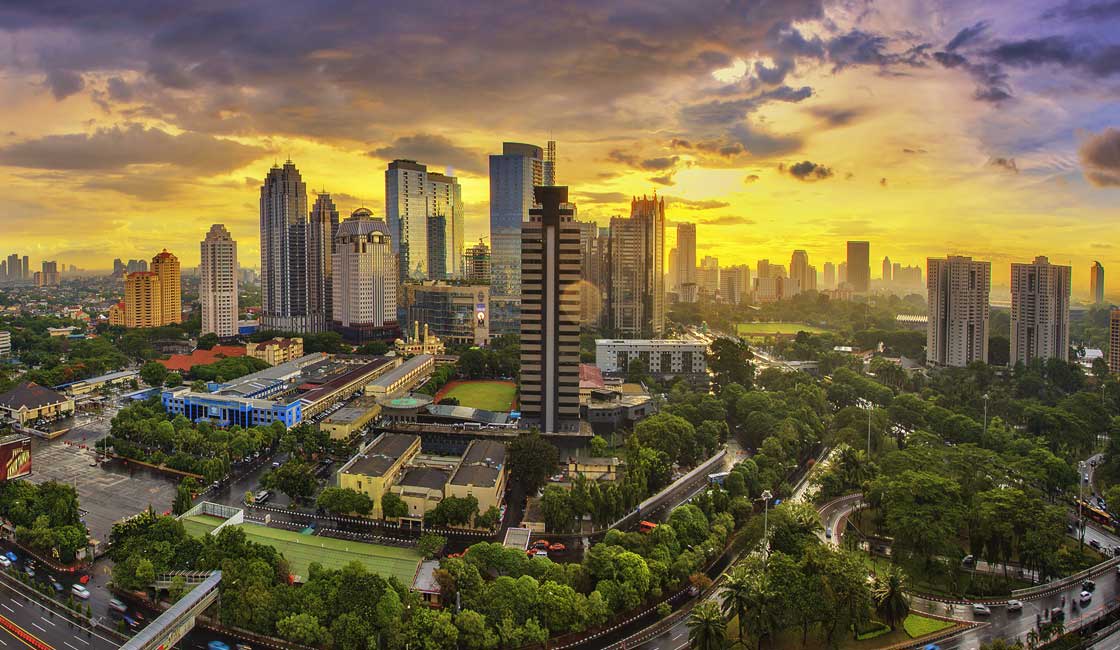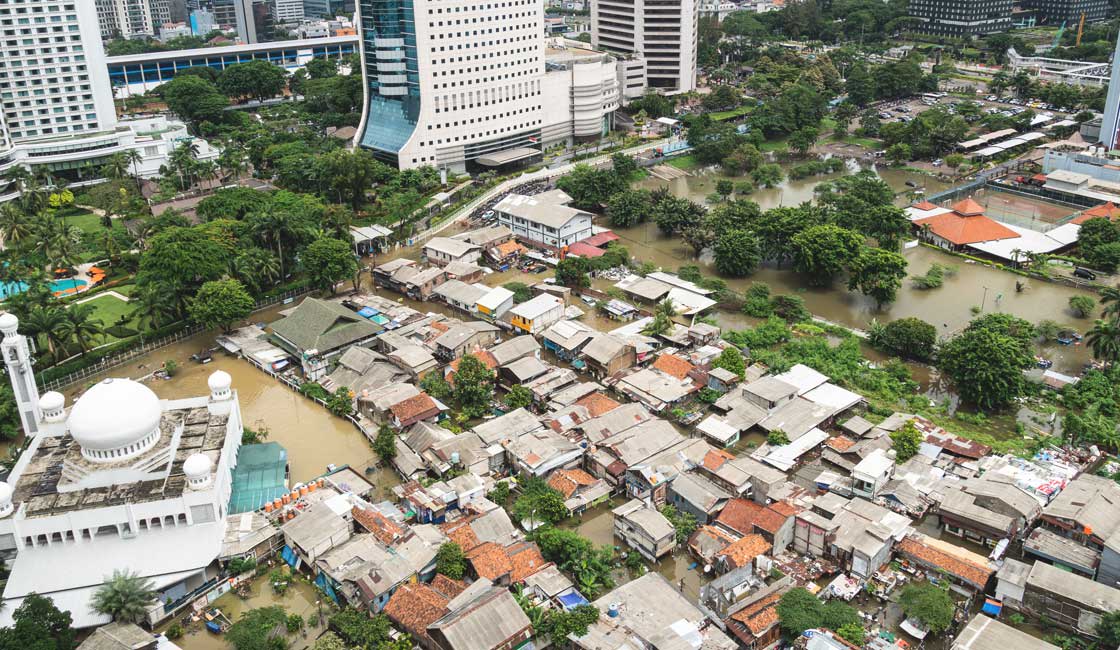
Jakarta – Indonesia’s raucous, restless, relentless capital city. But for how long? The Indonesian government announced in mid-August 2019 plans to move the capital from the problem-plagued Jakarta to a brand new site on the forested island of Borneo. Why? For many years the current capital has been beleaguered by issues of overpopulation, air pollution, and traffic congestion. But now, Jakarta faces one irrefutable certainty: it is slipping beneath the sea.

Jakarta is growing
Jakarta is home to over 10 million people (with a metropolitan area of 30 million), making it the second-most populous city in the world after Tokyo. It teeters on the north coast of the island of Java, where the Ciliwung River empties into the Java Sea. Jakarta is Indonesia’s political center and the heart of the country’s trade and services.
Traveling through Jakarta is like watching a movie on high-speed – life rushes past in flashes of color as if you’re watching its helter-skelter of urban growth unfurl before your eyes. Despite gridlocked streets and clogged, smoggy air, Jakarta has a chaotic charm that leaves its unique stamp on all who venture there. This might not be what you envision when you think of Indonesian vacations, but it is well worth spending a night or two (while it lasts).
It is a melting pot of cultures, a kaleidoscopic core of colors, sounds, and smells from all 17,000 islands that make up Indonesia. Home to impressive museums, world-class eateries, and thriving nightlife, Jakarta also has a reputation for its warm and hospitable locals. Highlights include the National Museum and the astonishing architecture of the Istiqlal Mosque, both found in Central Jakarta.

Flooding in the rainy season
The city is based on a low and flat floodplain, at around 8 meters above sea level. 13 rivers flow through Jakarta, and a poorly designed drainage system combined with its swampy location, high levels of rain in the wet season, and rising sea levels has made the city prone to flooding. Although water is everywhere, it is murky, dirty, and unfit to drink. Drinking water is instead drawn from subterranean aquifers that in turn weaken the city’s foundations.
At present, parts of Jakarta are sinking at a rate of 20 cm (8 inches) per year, and it’s predicted that the north of Jakarta could be 90% underwater in the next 30 years. As well as subsidence, Jakarta residents face dangerous levels of pollution, poor water quality, and impossibly congested roads as millions from the surrounding area pile in and out of the city for work each day.
Indonesian President Joko Widodo has recently declared a plan to build a new capital in a more central and safe location. As well as tackling Jakarta’s main headaches of overcrowding, congestion, and pollution, it has also been proposed as a strategic way of balancing economic disparity across the Indonesian archipelago with a more centralized seat of power.
The new site for the purpose-built city has been proposed in the Indonesian part of the island of Borneo (also shared by Malaysia and Brunei). Specifically, it’ll be between the Kutai Kartanegara regency and North Penajam Paser regency in East Kalimantan province, directly between the cities of Balikpapan and Samarinda. The cost of this dramatic relocation is set to be around 466 trillion rupiah ($33 billion). Construction begins next year, and in 2024 there are hopes to move in around 1.5 million civil servants.
Although this huge project will undoubtedly ease the pressure on the sinking city of Jakarta and halt some of its rapid expansion, residents have concerns about their own future and beg the government to concentrate on fixing the current problems. However, it has been announced that during this relocation (that could take around 10 years) another $40 billion will be spent on trying to prevent Jakarta from slipping under the waves.
Meanwhile, there are environmental concerns about the new capital. Borneo is home to some of the world’s most biodiverse tropical rainforests, harboring endangered species such as the orangutan, already under threat due to the palm oil industry and rampant deforestation. The world will no doubt be watching as plans unfold to ensure that this relocation is handled with care to avoid further ecological disaster.
While Rainforest Cruises aim to provide accurate and up-to-date information, we make no representations as to the accuracy or completeness of any information herein or found by following any link on this site. Rainforest Cruises cannot and will not accept responsibility for any omissions or inaccuracies, or for any consequences arising therefrom, including any losses, injuries, or damages resulting from the display or use of this information.




